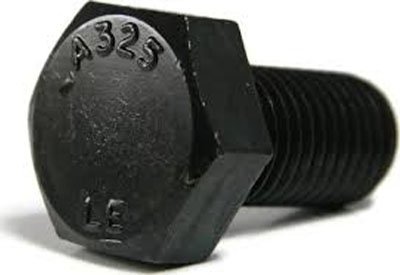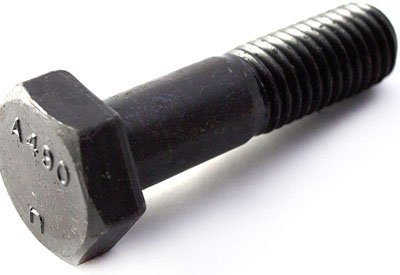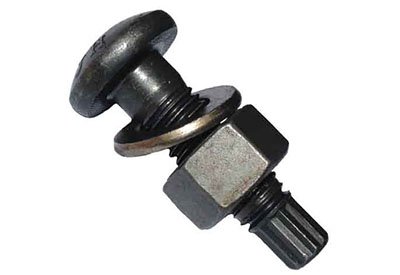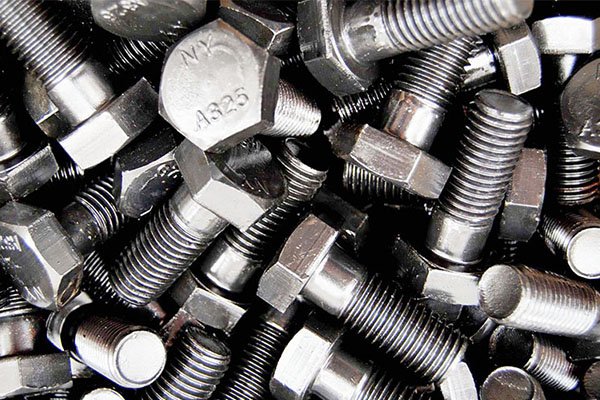Wholesale Fastener Distributor
a325 Structural Bolts a490
Heavy Hex Structural Bolts
Heavy hex structural bolts, particularly ASTM F3125 or a325 and a490 are a mainstay of PSI’s inventory, and are commonly required and utilized in construction projects such as metal buildings, tunnel and bridge, railway, oil and gas, and the wind energy industry. In these harsh environments, heavy hex structural bolts provide superior strength and longevity.
Heavy Hex Bolts Have the Following Characteristics:
- Material: Medium Carbon Steel
- Thread: Full thread or half thread
- Package: Small box, or 25kgs/carton, 36cartons/pallet
- Grade: ASTM F3125, A325 and A490
- Surface Finish: Plain, Black, Zinc, Hot dip galvanizing
- Size: 1/2″ to 1-1/2″
- Heavy hex bolts and nuts can be customized to your specifications or design.

A325 Structural bolts
The ASTM A325 specification addressed high-strength heavy hex structural bolts with diameters ranging from 1/2′′ to 1-1/2′′ before it was phased out in 2016. Because these bolts are meant for structural connections, their thread lengths are shorter than normal hex bolts. Thread lengths and other related dimensions can be found on our Structural Bolts page.
Only heavy hex structural bolts are covered by this specification. For bolts with similar mechanical qualities but different configurations and thread lengths.
Specification A449. Bolts for common applications, including anchor bolts, are included. For quenched and tempered steel bolts and studs with diameters bigger than 1-1/2′′ but identical mechanical characteristics.

A490 Structural bolts
A490 bolts are comparable to A325 heavy hex structural bolts in terms of application and dimensions, however they are composed of alloy steel rather than medium carbon steel, resulting in a stronger fastener. Only heavy hex structural bolts are covered under the A490 specification. Bolts with thread lengths differing from those stipulated for structural bolts but similar mechanical qualities.
Prior to its discontinuation in 2016, the ASTM A490 specification covers quenched and tempered alloy steel heavy hex structural bolts with a minimum tensile strength of 150 ksi. Because these bolts are meant for structural connections, their thread lengths are shorter than normal hex bolts. Thread lengths and other related dimensions can be found on our Structural Bolts page.
Due to the risk of hydrogen embrittlement, ASTM A490 bolts must not be coated by hot-dip galvanizing, mechanical deposition, or zinc electroplating. As per ASTM F1136 Grade 3, commercially known as Geomet, coating A490 bolts with Zinc/Aluminum Corrosion Protective Coatings has been certified. The A490 specification requires further testing in the form of Magnetic Particle Inspection for Longitudinal Discontinuities and Transverse Cracks.

Tension Control Bolts
Tension Control Bolts, sometimes known as tc bolts, are used to join steel to steel in high-strength applications. It’s one of the most popular fasteners for high-strength applications, even outnumbering big hex bolts. The dome-shaped head is not meant to be driven using standard tools. Working with it necessitates the use of a unique wrench. The bolt is bent after installation, and the extension of the bolt is sheared off due to the torque. Its spline also helps us to determine when the bolts have attained the exact amount of tension.
Tension Control Bolts Have Many Advantages
These structural bolts are utilized in the construction of steel constructions, as we explained earlier. As a result, they are designed to ensure that the construction lasts as long as feasible. Furthermore, despite the sophisticated fastening mechanism, they are simple to use and only take one person to install. It has built-in functionality for determining the tensioning needed to hold the structure together, as well as assisting the user in doing so. This feature allows the user to check whether the desired tension is attained independent of the amount of torque used to secure it.
A325 Structural Bolts:
The ASTM A325 specification addressed high-strength heavy hex structural bolts with diameters ranging from 1/2′′ to 1-1/2′′ before it was phased out in 2016 and replaced with spec ASTM F3125. Because these bolts are meant for structural connections, their thread lengths are shorter than normal hex bolts. Only heavy hex structural bolts are covered by this specification. For bolts with similar mechanical qualities but different configurations and thread lengths.
Specification A449. Bolts for common applications, including anchor bolts, are included. For quenched and tempered steel bolts and studs with diameters bigger than 1-1/2′′ but identical mechanical characteristics.
A490 Structural Bolts:
A490 bolts are comparable to A325 heavy hex structural bolts in terms of application and dimensions, however they are composed of alloy steel rather than medium carbon steel, resulting in a stronger fastener. Only heavy hex structural bolts are covered under the A490 specification. Bolts with thread lengths differing from those stipulated for structural bolts but similar mechanical qualities.
Prior to its discontinuation in 2016 and replaced with the new spec of F3125, the ASTM A490 specification covers quenched and tempered alloy steel heavy hex structural bolts with a minimum tensile strength of 150 ksi. Because these bolts are meant for structural connections, their thread lengths are shorter than normal hex bolts. Due to the risk of hydrogen embrittlement, ASTM A490 bolts must not be coated by hot-dip galvanizing, mechanical deposition, or zinc electroplating. As per ASTM F1136 Grade 3, commercially known as Geomet, coating A490 bolts with Zinc/Aluminum Corrosion Protective Coatings has been certified. The A490 specification requires further testing in the form of Magnetic Particle Inspection for Longitudinal Discontinuities and Transverse Cracks.
Conclusion
Your engineers will ultimately determine the grade of structural bolts you’ll need, but it’s crucial to understand the differences between grades A325 and A490. Although Grade A490 is stronger than Grade A325, strength isn’t the sole consideration when choosing bolts. Bolts made of A490 cannot be hot-dip galvanized or mechanically galvanized. Although Grade A325 is not as strong as Grade A327, it is a less expensive bolt that can be galvanized to prevent corrosion.
1210 C N Council Rd, Oklahoma City, OK 73127 Phone: 405-782-0380 Fax: 405-782-0387

